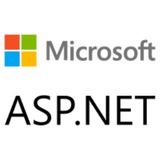Create containers in .NET without Dockerfile?
Here is how:
Containers become the easiest way to distribute and run applications and services in the cloud.
.NET app containerization could not be done without Dockerfile where multi-stage build steps.
But, starting from .NET 7, this process is simplified.
It strips down that pre-configuration by introducing built-in container support with the dotnet publish command.
Before running a command you need to add the Microsoft.NET.Build.Containers package that will infer some of the project properties like base image, version, image repository, etc.
For now, only Linux containers are supported.
Source: Pavle Davitković LinkedIn
Here is how:
Containers become the easiest way to distribute and run applications and services in the cloud.
.NET app containerization could not be done without Dockerfile where multi-stage build steps.
But, starting from .NET 7, this process is simplified.
It strips down that pre-configuration by introducing built-in container support with the dotnet publish command.
Before running a command you need to add the Microsoft.NET.Build.Containers package that will infer some of the project properties like base image, version, image repository, etc.
For now, only Linux containers are supported.
Source: Pavle Davitković LinkedIn
👍23❤🔥3❤2
TUnit is a newer framework that launched its first alpha releases in 2024 and is on the path to a v1.0.0 release.
https://andrewlock.net/converting-an-xunit-project-to-tunit
https://andrewlock.net/converting-an-xunit-project-to-tunit
Andrew Lock | .NET Escapades
Converting an xUnit test project to TUnit
In this post I discuss the new TUnit testing framework, why I ported one of my libraries to use it instead of xUnit and related issues I had to deal with
👍3❤2
